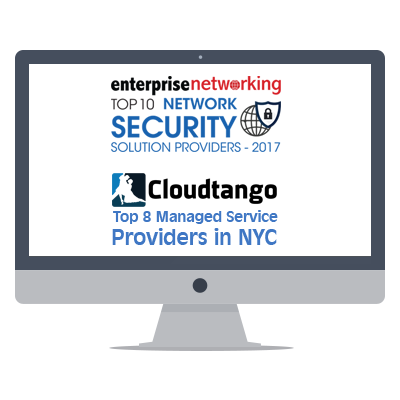
According to the FBI in an urgent alert, high-impact ransomware attacks threaten U.S. businesses and organizations.
In recent posts we have shared the definition of ransomware and earlier today we told you the Department of Homeland Security (DHS) issued a warning about hackers infiltrating VPNs and how you could resolve the issue.
The government does get involved in issuing cybersecurity warnings from time to time. We have noticed the amount of cybersecurity news coming from the government has skyrocketed lately.
Today in fact a DHS official said the lack of cybersecurity talent is a national security threat!
DHS also warned about ransomware earlier, in September of this year.
The IRS warned about phishing emails this past August.
There is a slew of cybersecurity news we’ve been reporting on which we think would be helpful as a resource to help you learn about how to protect your organization.
Other past FBI warnings included one about North Korea, another which suggests organizations use layered defenses to stay cybersecure, and yet another ransomware warning from May of 2016.
As we’ve mentioned in 2016 – we reached out to the FBI and asked if a company pays a ransomware ransom and the payment goes to ISIS (terrorists are funding themselves with ransomware and hacking), could the organization or person who pays be charged with funding terrorism? We’ve reached out repeatedly and have never heard back but our advice is better safe than sorry – be prepared for a ransomware attack; in advance and don’t pay.
The full FBI warning follows below:
WHAT IS RANSOMWARE?
Ransomware is a form of malware that encrypts files on a victim’s computer or server, making them unusable. Cyber criminals demand a ransom in exchange for providing a key to decrypt the victim’s files.
Ransomware attacks are becoming more targeted, sophisticated, and costly, even as the overall frequency of attacks remains consistent. Since early 2018, the incidence of broad, indiscriminant ransomware campaigns has sharply declined, but the losses from ransomware attacks have increased significantly, according to complaints received by IC3 and FBI case information.
Although state and local governments have been particularly visible targets for ransomware attacks, ransomware actors have also targeted health care organizations, industrial companies, and the transportation sector.
HOW DOES RANSOMWARE INFECT ITS VICTIMS?
Cyber criminals use a variety of techniques to infect victim systems with ransomware. Cyber criminals upgrade and change their techniques to make their attacks more effective and to prevent detection.
The FBI has observed cyber criminals using the following techniques to infect victims with ransomware:
- Email phishing campaigns: The cyber criminal sends an email containing a malicious file or link, which deploys malware when clicked by a recipient. Cyber criminals historically used generic, broad-based spamming strategies to deploy their malware, while recent ransomware campaigns have been more targeted. Criminals may also compromise a victim’s email account by using precursor malware, which enables the cyber criminal to use a victim’s email account to further spread the infection.
- Remote Desktop Protocol vulnerabilities: RDP is a proprietary network protocol that allows individuals to control the resources and data of a computer over the internet. Cyber criminals have used both brute-force methods, a technique using trial-and-error to obtain user credentials, and credentials purchased on darknet marketplaces to gain unauthorized RDP access to victim systems. Once they have RDP access, criminals can deploy a range of malware—including ransomware—to victim systems.
- Software vulnerabilities: Cyber criminals can take advantage of security weaknesses in widely used software programs to gain control of victim systems and deploy ransomware. For example, cyber criminals recently exploited vulnerabilities in two remote management tools used by managed service providers (MSPs) to deploy ransomware on the networks of customers of at least three MSPs.
IF MY SYSTEM IS INFECTED, SHOULD I PAY THE RANSOM? SHOULD I CONTACT THE FBI?
The FBI does not advocate paying a ransom, in part because it does not guarantee an organization will regain access to its data. In some cases, victims who paid a ransom were never provided with decryption keys. In addition, due to flaws in the encryption algorithms of certain malware variants, victims may not be able to recover some or all of their data even with a valid decryption key.
Paying ransoms emboldens criminals to target other organizations and provides an alluring and lucrative enterprise to other criminals. However, the FBI understands that when businesses are faced with an inability to function, executives will evaluate all options to protect their shareholders, employees, and customers.
Regardless of whether you or your organization have decided to pay the ransom, the FBI urges you to report ransomware incidents to law enforcement. Doing so provides investigators with the critical information they need to track ransomware attackers, hold them accountable under U.S. law, and prevent future attacks.
HOW CAN I PROTECT MYSELF AGAINST RANSOMWARE?
The most important defense for any organization against ransomware is a robust system of backups. Having a recent backup to restore from could prevent a ransomware attack from crippling your organization. The time to invest in backups and other cyber defenses is before an attacker strikes, not afterward when it may be too late.
As ransomware techniques and malware continue to evolve and become more sophisticated, even the most robust prevention controls are no guarantee against exploitation. This makes contingency and remediation planning crucial to business recovery and continuity. Those plans should be tested regularly to ensure the integrity of sensitive data in the event of a compromise.
CYBER DEFENSE BEST PRACTICES
- Regularly back up data and verify its integrity. Ensure backups are not connected to the computers and networks they are backing up. For example, physically store them offline. Backups are critical in ransomware; if you are infected, backups may be the best way to recover your critical data.
- Focus on awareness and training. Since end users are targeted, employees should be made aware of the threat of ransomware and how it is delivered, and trained on information security principles and techniques.
- Patch the operating system, software, and firmware on devices. All endpoints should be patched as vulnerabilities are discovered. This can be made easier through a centralized patch management system.
- Ensure anti-virus and anti-malware solutions are set to automatically update and that regular scans are conducted.
- Implement the least privilege for file, directory, and network share permissions. If a user only needs to read specific files, they should not have write-access to those files, directories, or shares. Configure access controls with least privilege in mind.
- Disable macro scripts from Office files transmitted via email. Consider using Office Viewer software to open Microsoft Office files transmitted via email instead of full Office Suite applications.
- Implement software restriction policies or other controls to prevent the execution of programs in common ransomware locations, such as temporary folders supporting popular internet browsers, and compression/decompression programs, including those located in the AppData/LocalAppData folder.
- Employ best practices for use of RDP, including auditing your network for systems using RDP, closing unused RDP ports, applying two-factor authentication wherever possible, and logging RDP login attempts.
- Implement application whitelisting. Only allow systems to execute programs known and permitted by security policy.
- Use virtualized environments to execute operating system environments or specific programs.
- Categorize data based on organizational value, and implement physical and logical separation of networks and data for different organizational units. For example, sensitive research or business data should not reside on the same server and network segment as an organization’s email environment.
- Require user interaction for end-user applications communicating with websites uncategorized by the network proxy or firewall. For example, require users to type information or enter a password when their system communicates with a website uncategorized by the proxy or firewall.
Apex Technology Services also has tips we have found which will keep you safe:
How your organization can stay safe:
1) Determine if you are in possession of private information for New York residents, even if you are not conducting business in New York. This may be the opportunity to assess whether you need to retain this information for ongoing business purposes.
2) Ensure that you have administrative, technical, and physical safeguards in place that comply with the requirements of the SHIELD Act.
3) Develop, or revisit, internal policies for how the company will identify and respond to a data breach. Ensure that your employees understand the policies and that they are properly implemented.
4) This is a good time to re-evaluate corporate cybersecurity – new attacks are launched constantly against organizations. We reported recently that a new IRS scam warning has been disseminated by the IRS – warning people to be careful not to click on emails from the organization as they are likely malicious messages disguised to look like they emanated from the agency.
5) Read cybersecurity essentials – a simple list which will help most organizations become far more secure.
6) Go to a phishing simulation vendor now and sign up for one of their offerings. Phishing Box, KnowBe4 and Phish360; are all great.
7) We also recommend you get a free evaluation of your cybersecurity risk from an MSP/MSSP immediately – they can also help you build in the needed compliance to reduce the risk of being fined.



